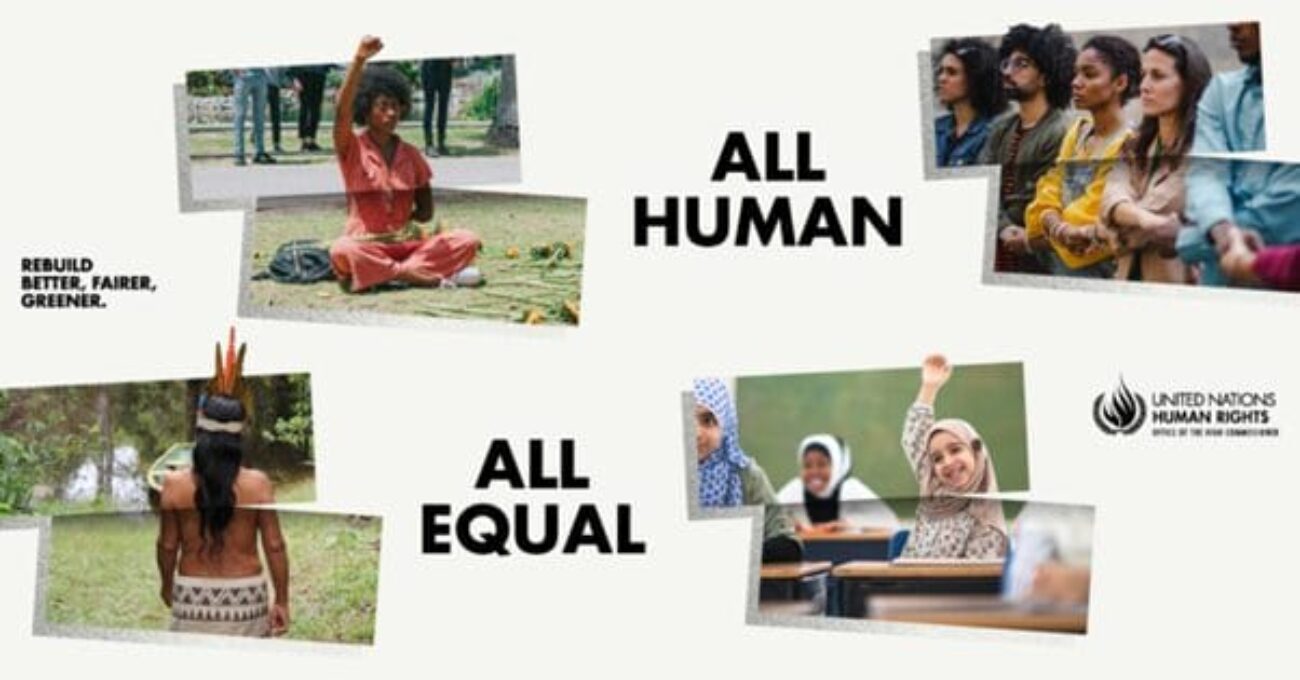
Today is Human Rights Day. Every year, on this date, human rights activists and people from across the world come together to honour and celebrate the Universal Declaration of Human Rights (UDHR). The Declaration was adopted by the United Nations (UN) General Assembly in Paris on 10 December 1948. This year’s theme relates to equality and Article 1 of the UDHR – “All human beings are born free and equal in dignity and rights.”
Gender equality: A global ambition
Gender equality continues to be a global ambition for businesses worldwide. Despite years of advocacy from research organisations and civil society, many business efforts have been limited to collecting gender-segregated data or putting in place women’s empowerment initiatives. These initiatives are frequently ineffective in addressing the problems. Many fall short of understanding the root causes that led to the occurrence of gender-based violence and harassment (GBVH) in the first place.
Discovering and understanding gender issues in supply chains
We have been building our expertise in this area since 2019. We have conducted gender assessments and sexual harassment investigations in South and Southeast Asia, and East Africa, in supply chains across various sectors including garment and textile, food processing and beverages, and agriculture. Staying true to the Impactt approach, our gender assessments are worker-centric, data- and knowledge-driven, and our ability to uncover the scale and extent of GBVH cases have proven to provide our clients with deep insights to take targeted preventative and remedial actions. Our solutions and recommendations are geared toward changing the cultural context and gender dynamics in the workplace, as well as enhancing management structure capability and inclusivity.
The Impactt approach
We work with our clients to investigate, identify and remediate instances of GBVH in their supply chain. We support and guide them through initiatives that will enhance their gender and sexual harassment policies, increase their personnel and GBVH knowledge in Human Resources to manage gender-sensitive complaints, and provide them with the tools, training, and knowledge that will help them to follow up, investigate and revolve GBVH cases in the workplace. We have seen how these tools and methods have led to transformative changes in workplaces, which allowed their leadership teams to focus on business goals. Here’s a snapshot of some of our recent work in this area:
India
We worked with a garment factory to develop and implement a Factory Improvement Program with some focus on gender issues. The program included training for over 60 employees that included Senior and Middle Management as well as workers, on various topics such as:
- Workers’ rights
- The Prevention of Sexual Harassment at the Workplace (POSH) act
- Recruitment best practices
- Leadership and management skills
- Workplace and hostel management
- Working hours and wage management
- Communications skills
- Health and wellbeing
- Finance management
We also implemented a grievance helpline for workers and supported the factory with recruiting for key positions such as a compliance manager, women’s empowerment officer and a multilingual hostel warden.
During our follow up assessments, management and workers reported multiple helplines and wellbeing support initiatives have been implemented while the female supervisors ratio increased from 5 to 60 percent. Workers highlighted improved worker-supervisor relationships as well as enhanced mutual respect between genders. They felt more motivated and empowered to be able to speak to management about workplace issues and management experienced a noticeable reduction in staff turnover and absenteeism because of the program.
Africa
We worked with a client in the agriculture industry to implement specific interventions in the business to address the root causes and enabling factors of gender equality, sexual harassment, and discrimination. On average over 70% of workers we interviewed reported that they have experienced, witnessed, or heard about GBVH in the workplace. One key area of focus was to build effective grievance mechanisms internally, and activities included setting up an independent helpline to enable workers to report issues freely and training senior management to investigate, follow up and resolve complex cases. The helpline received over 150 calls within six weeks since launch with cases related to payment issues, working hours, recruitment, and unacceptable behaviours in the workplace. Four months in, Impactt supported the client to successfully close over 50% of the cases. The client has also conducted further internal training on investigations and now over 100 employees are equipped with the knowledge and skills to support better grievance handling when it comes to GBVH in the future.
Doing what is right for the workers and business
The Universal Declaration of Human Rights has been in existence for 73 years. The principles of equality and non-discrimination are at the heart of human rights. The time has come for businesses to assume responsibility and be proactive by spearheading leading, innovative human rights and equality initiatives that are aligned with doing what is right for the workers in their supply chain, and their business.
We have the knowledge and expertise to support businesses, small and large, with navigating the sometimes-treacherous landscape of gender challenges in complex supply chains. A strong understanding of workers’ needs is integral to unlocking the positive potential of the supply chain and building shared value for workers, suppliers and brands.



